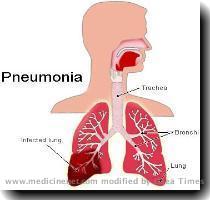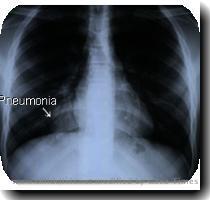FDA panel says next-generation anti-bacterial vaccine from Pfizer works for children
By APWednesday, November 18, 2009
FDA panel backs Pfizer’s enhanced vaccine for kids
BETHESDA, Md. — Federal health experts said Wednesday an updated version of Pfizer’s best-selling anti-infection vaccine is safe and effective for infants and toddlers, despite company studies that failed to meet certain goals.
The Food and Drug Administration’s panel of vaccine experts voted 10-1 in favor of Pfizer’s Prevnar 13 to protect against pneumococcal disease.
While the FDA is not required to follow the group’s advice, its recommendation moves the company closer to expanding the use of a treatment that racked up more than $2.7 billion in sales last year as the world’s top-selling vaccine.
“We’re very gratified to have achieved a positive recommendation from the committee,” said Dr. Emilio Emini, Pfizer’s chief of vaccine research.
The FDA is expected to make its approval decision by Dec. 30.
The new vaccine reduces risk of infection from 13 varieties of the disease, which causes thousands of cases of ear infection, meningitis and pneumonia each year. The new version adds protection against six additional strains to the seven covered by the current vaccine.
The FDA says the new strains account for more than 60 percent of pneumococcal cases in children younger than 5 in the U.S.
Pfizer has estimated that use of Prevnar 13 could prevent 9,800 deaths and 160,000 hospitalizations due to pneumonia over 10 years.
Pfizer is competing against rivals GlaxoSmithKline and Merck to cement its place in the global vaccine marketplace. GlaxoSmithKline markets the vaccine Synflorix, which is approved in Europe for use in children. Merck markets Pneumovax 23, which also defends against pneumococcal disease but is targeted for use in adults.
Vaccines are seen as a critical path to growth for drugmakers, as slowing prescription medicine sales and intensifying generic competition put pressure on company bottom lines.
FDA reviewers noted that company studies failed to meet preselected goals for three types of pneumococcal disease.
But Pfizer scientists argued that the missed statistical targets were a result of comparisons between the new vaccine and the original Prevnar. Since Prevnar is recommended for all children in the U.S., the company could not compare patients taking Prevnar 13 against an untreated group — the standard method for studying drugs and vaccines.
The FDA panel recommended long-term safety tracking for the new vaccine, and Pfizer has agreed to a 43,000-patient follow-up study.
“The data I’ve heard suggest it’s safe, but these were fairly small studies and we’re inferring safety with Prevnar 13 from our experience with Prevnar,” said panel member Patricia Ferrieri, a professor at the University of Minnesota Medical Center.
New York-based Pfizer acquired Prevnar from Wyeth, as part of a $68 billion buyout that closed last month.
Prevnar has been on the market for more than nine years and is on sale in 95 countries. More than 235 million doses have been distributed, according to the company.
The vaccine requires a series of four injections, generally given at 2, 4 and 6 months old and then between 12 and 15 months old.
Prevnar 13 also recently received a positive review from a committee of European regulators, setting the stage for approval across the European Union.
Tags: Bethesda, Childhood Immunizations, Diseases And Conditions, Immunizations, Maryland, Middle East, North America, Pharmaceutical Manufacturing, United States

